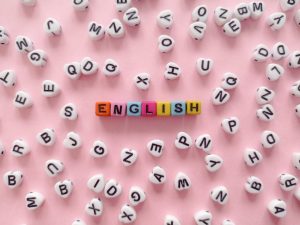Hello there! Interested in IB Psychology? Finding the ideal topic for your Internal Assessment (IA) is important. Having gone through this process, I’m here to help you choose from various options. Psychology IA topics are fascinating and rich in content. However, they must meet the specific criteria of your course, whether you’re studying at Higher Level (HL) or Standard Level (SL).
What Is IB Psychology IA?
In my opinion, one of the most significant aspects of the IB is the emphasis on independent research and inquiry. The Internal Assessment is a prime example, particularly in subjects like Psychology. Here, students don’t just learn from textbooks; they become investigators, delving into the realms of their curiosity. As I know, this approach enriches their understanding of the subject and hones their research skills.
According to general IB criteria, the IA is a crucial curriculum component, accounting for a significant portion of the final grade. Here, students demonstrate their ability to apply theoretical knowledge in practical scenarios. From my perspective, the success of an IA largely hinges on choosing a topic that resonates with the student’s interests and aligns with the IB’s rigorous academic standards.
Throughout my years guiding IB students, I’ve emphasized the importance of critical thinking and ethical considerations in their research. It’s not just about gathering data and presenting findings; it’s about understanding the broader implications of their research and its contribution to Psychology. In my view, this sets the IB apart — its focus is on creating well-rounded individuals who succeed academically and understand their responsibilities as global citizens.
Psychology IA Topics and Research Questions
HL courses are more in-depth and comprehensive, requiring a greater time commitment and a deeper understanding of the subject matter. While still rigorous, SL courses cover less content and provide a solid foundational knowledge of the subject.
These Psychology IA topics suit the different expectations and depth of analysis required at the SL and HL levels while providing a wide range of psychological concepts and theories to research.

Standard Level (SL) Psychology IA Topics
SL students, while still expected to conduct research and present their findings, typically work on slightly less complex topics:
- The Effect of Sleep on Memory Recall. How does sleep duration affect the recall of visual and verbal information in adolescents?
- Social Media’s Impact on Self-Esteem. What is the relationship between social media usage and self-esteem levels in high school students?
- Stress and Academic Performance. Does stress level correlate with academic performance in secondary school students?
- Color Psychology and Mood. How do different colors affect mood and stress levels in teenagers?
- Peer Pressure and Risk-Taking Behavior. To what extent does peer presence influence risk-taking behavior in adolescents?
- The Bystander Effect in School Settings. How does the number of bystanders affect the likelihood of intervention in school bullying incidents?
- Memory and Scent Association. Can specific scents enhance the recall of studied material among high school students?
- The Influence of Music on Concentration. Does background music improve concentration and task performance in teenagers?
- Gender Differences in Emotional Expression. Are there gender differences in the expression of emotions among high school students?
- Effects of Exercise on Anxiety Levels. What is the impact of regular physical exercise on anxiety levels in adolescents?
- Learning Styles and Academic Success. How do different learning styles correlate with academic success in high school students?
- Impact of Sleep Deprivation on Decision-Making. How does sleep deprivation affect decision-making abilities in teenagers?
- Cultural Influences on Body Image Perception. How do cultural factors influence body image perception among high school students?
- The Role of Social Support in Stress Management. How does perceived social support affect stress management in adolescents?
- Motivation and Goal Setting in Teenagers. What is the relationship between goal-setting strategies and motivation levels in high school students?
- Impact of Caffeine on Short-term Memory. Does caffeine consumption improve short-term memory recall in high school students?
- Influence of Group Study on Learning Effectiveness. How does studying in a group versus studying alone affect adolescent learning outcomes?
- Effects of Multitasking on Academic Performance. Does multitasking during study sessions impair academic performance among high school students?
- Social Influence on Eating Habits. How do peer groups influence eating habits and preferences in teenagers?
- Attitudes Toward Mental Health Interventions. What are the perceptions and attitudes of high school students towards mental health interventions?
- Role of Personality in Team Dynamics. How do different personality types impact team dynamics and performance in school projects?
- Parenting Styles and Adolescent Self-Efficacy. How do different parenting styles correlate with self-efficacy levels in adolescents?
- Impact of Nature Exposure on Stress Reduction. Does regular exposure to natural environments reduce stress levels in high school students?
- Technology’s Effect on Attention Span. How does extensive use of technology influence attention span and focus in teenagers?
- Cultural Influences on Perceptions of Success. How do cultural backgrounds shape perceptions and definitions of success among adolescents?
- Gender Differences in Coping Mechanisms. Are there gender-specific differences in coping mechanisms for stress among high school students?
- Effects of Music Genres on Mood. How do different genres of music impact the mood of teenagers?
- The Role of Exercise in Cognitive Functioning. Does regular physical exercise enhance adolescents’ cognitive functions, such as memory and attention?
- Social Networking and Interpersonal Skills. What is the impact of heavy social networking use on the interpersonal skills of high school students?
- Effects of Sleep Quality on Learning Ability. How does sleep quality affect learning ability and retention in teenagers?
The focus here is more on demonstrating an understanding of key psychological concepts and theories and applying them in a practical context but with a manageable scope within the SL curriculum’s constraints.
Buy IB IA with Full Confidentiality!
Grab your IB IA with full privacy guaranteed.
Our no-leak policy keeps your details 100% secure.

Higher Level (HL) Psychology IA Topics
Here, students are expected to engage in more complex and detailed research. The IA at the HL level might involve researching intricate psychological theories, conducting extensive experiments, or undertaking detailed case studies:
- The Influence of Language on Thought. How does language diversity influence cognitive processes in bilingual individuals?
- Neurological Correlates of Addiction. What are the neurological changes associated with addiction behaviors in young adults?
- The Impact of Childhood Trauma on Adult Relationships. How does early childhood trauma impact attachment styles in adult relationships?
- Cognitive Dissonance in Decision Making. How does cognitive dissonance affect post-decision satisfaction in young adults?
- Cross-Cultural Differences in Perception. How do cultural backgrounds influence visual perception and interpretation?
- Effects of Mindfulness on Cognitive Function. Does practicing mindfulness meditation enhance cognitive flexibility in adolescents?
- The Role of Genetics in Personality Development. To what extent do genetic factors influence personality traits in identical twins?
- Ethical Decision-Making Processes. What cognitive processes are involved in making ethical decisions among young adults?
- Psychological Impacts of Climate Change. How does awareness of climate change affect mental health in young individuals?
- Social Identity Theory in Group Dynamics. How does social identity theory explain intergroup conflict in diverse school environments?
- Neuroscience of Creativity. What are the neural mechanisms underlying creative thinking in adolescents?
- Influence of Digital Technology on Cognitive Development. How does prolonged exposure to digital technology affect cognitive development in children?
- Psychological Resilience in Adversity. What factors contribute to psychological resilience in the face of adversity among teenagers?
- The Psychology of Moral Judgments. What cognitive processes underlie moral judgment in complex scenarios?
- Implicit Bias and Decision Making. How do implicit biases influence decision-making processes in diverse groups of young adults?
- Neuroplasticity and Learning Languages. How does learning a second language affect neuroplasticity in the adolescent brain?
- Psychological Effects of Cyberbullying. What are the long-term psychological effects of cyberbullying on adolescents?
- The Role of Emotion in Memory Formation. How do emotional states influence the formation and recall of memories in young adults?
- Cognitive Biases in Decision Making. How do cognitive biases affect decision-making processes in teenagers facing moral dilemmas?
- Psychological Impacts of Chronic Illness. What are the psychological impacts of living with a chronic illness during adolescence?
- Influence of Socioeconomic Status on Stress Levels. How does socioeconomic status influence stress levels and coping mechanisms in teenagers?
- Parental Influence on Career Choices. To what extent do parents influence the career choices of high school students?
- Cross-Cultural Perceptions of Mental Health. How do cultural differences affect perceptions and attitudes toward mental health among adolescents?
- Gender Roles and Academic Aspirations. How do traditional gender roles influence academic aspirations and choices in teenagers?
- Effects of Bilingualism on Cognitive Flexibility. Does being bilingual enhance cognitive flexibility and problem-solving skills in adolescents?
- Psychological Consequences of Social Isolation. What are the psychological consequences of prolonged social isolation in teenagers?
- Impact of Parental Conflict on Child Development. How does exposure to parental conflict affect emotional development in adolescents?
- Ethnic Identity and Self-Esteem. How does ethnic identity formation impact self-esteem levels in multicultural adolescents?
- Psychological Effects of Climate Anxiety. What are the psychological effects of climate anxiety on young adults?
- The Influence of Art on Emotional Regulation. How does engagement with art (creation or appreciation) affect emotional regulation in teenagers?
HL students are often encouraged to demonstrate a thorough understanding of advanced concepts and their applications.
Common Mistakes to Avoid in Your Psychology IA
When working on your Psychology Internal Assessment for the IB program, it’s crucial to be aware of common pitfalls that can affect the quality of your work.
A frequent mistake is choosing a topic that’s too broad, making it challenging to research in depth within the constraints of an IA. It’s equally important to adhere strictly to the IB guidelines, which cover everything from the structure and format to the word count. The heart of your IA, the research question, should be clear, focused, and directly aligned with your study. Underpinning your chosen IA topic with thorough background research is essential; it forms the foundation for your analysis.
When conducting empirical research, a well-designed methodology is crucial. Not only should your approach be scientifically sound, but it must also adhere to ethical guidelines, especially when involving human participants. Once you’ve gathered your data, the real challenge begins with analyzing and interpreting these results regarding psychological theories and your research question.
Equally critical is the structure of your Psychology IA. A well-crafted introduction sets the stage, while a strong conclusion ties everything neatly together. Throughout the IA, consistency and clarity in your argumentation are key. Finally, never underestimate the value of feedback and the importance of thorough editing and proofreading.
The Bottom Line
Choosing an appropriate Psychology IA topic is crucial in your IB experience. This choice profoundly influences both your engagement with the subject and the quality of your work, whether you are in the HL or SL program. Through careful consideration, extensive research, and a bit of originality, you can develop an IA that fulfills the IB requirements and reflects your enthusiasm for Psychology.
Best of luck on this academic venture! Remember, our team of experts in Buy IB IA is always available to assist you in writing a top-notch project that aligns with your interests and academic goals.

Nick Radlinsky
Nick Radlinsky is a passionate educator, marketer, and management expert with over 15 years of experience in the education sector. After graduating from business school in 2016, Nick embarked on a journey to earn his PhD, fueled by his dedication to making education better for students everywhere. His extensive experience, beginning in 2008, has made him a trusted authority in the field.
Nick's groundbreaking article, published in Routledge's "Entrepreneurship in Central and Eastern Europe: Development through Internationalization," showcases his keen insights and commitment to improving the educational landscape. Guided by his motto, "Make education better," Nick's mission is to simplify students' lives and promote efficiency in learning. His innovative ideas and leadership have helped transform countless educational experiences, setting him apart as a true pioneer in his field.




